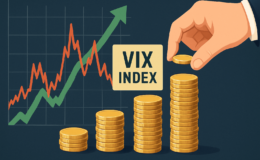Impact Investing: the Economy is Moving Away From Profit and Toward Purpose
- By : EYazhari
- Category : Books, Guest Post, Investing

In life, there are two main ways you can achieve financial freedom: you could get rich at all costs and not care about anything else, which could also put you in trouble and make enemies along the way, or you could become a conscious investor with a purpose. The first is not necessarily more profitable.
The following guest post is brought to you by Eva Yazhari, co-founder and CEO of Beyond Capital, which invests in seed-stage, for-profit social enterprises serving impoverished communities throughout India and East Africa. You can read more about her at the end of the post.
Impact investing, or investing money in companies and causes that make a positive impact on the world, allows investors to bring their spending and investing choices closer into alignment with their values, meaning, and joy, which ultimately drives lasting success. This idea has met resounding success with millennials and members of Gen Z who demand the integration of social values into every aspect of life. In fact, Fidelity estimates that as much as 77 percent of millennials have already made an impact investment—and this is only the beginning.
Nevertheless, when I advocate for impact investing, I often encounter pushback, especially from asset managers. They might acknowledge that the next generation is open to impact investing, but at the end of the day, they or their clients do not want to give up returns in favor of impact. These fears stem from a common misconception that impact investing is, in fact, philanthropy by another name. But let us be clear: you are not a martyr, and you do not have to sacrifice returns in order to make an impact.
Impact investing is not about tearing down or replacing the current financial system. It is about engaging that system to do more—to not only create financial returns but also to create a positive impact in the process. For the first time, the economy is moving away from a limited focus on profit and moving toward purpose.
Keeping all returns in mind, including financial returns, can yield positive results. At the end of the day, the new purpose-driven economy can be just as profitable as the old, shortsighted model. Here’s how.
Impact investing is not risky
Impact investing is simply investing that asks you to factor in other criteria than financial returns., and in many cases, financial return and impact go hand in hand. Impact investing is not a risky, fringe approach to investing. In fact, as the economy shifts away from profit and toward purpose, one in every four dollars under professional management is already invested using socially responsible strategies. Assets held in funds that have been screened for ESG factors (environmental, social, and governance-related factors) have risen by an astounding 142 percent since 2012.
This shift can be seen not only in how people invest but in how they make their purchase decisions as well. Globally, the market of ESG investments is estimated to be $30.7 trillion—and it is growing. As I write this, emerging research suggests that many variations of impact investing will perform better after the COVID-19 pandemic as investors shift priorities. However, evidence of ESG outperformance was emerging long before the pandemic hit.
In 2019, for instance, one study of 2,800 global stocks by the BlackRock Investment Institute found that ESG portfolios can be more resilient in downturn scenarios—suggesting that factors such as good governance, resilient supply chains, and environmentally sustainable business practices tend to do well in downturns. Humanity’s eyes are now being turned to the notion that more than just shareholders are impacted by investments.
Another study, by State Street Global Advisors, found that almost 70 percent of ESG investors stated that these investments helped them manage volatility. ESG practices are also being viewed as risk mitigators in business. Therefore, avoiding companies that do not have good governance, do not have sustainable supply chains, or do not have sound environmental policies will help investment portfolios navigate the future and the risks that could arise in the coming decades.
To the conscious investor, this means returns do not have to be sacrificed and that, in fact, their ESG compliant investment holdings may provide opportunities for better, more sustainable returns.
Purpose-driven businesses act for all stakeholders
Socially and environmentally conscious companies that have produced double bottom-line returns for decades, like Seventh Generation, are inculcating a new generation of companies, the B Corporation, which is operating in ways that are better for workers, community, customers, and the environment. The company pursues this double-bottom-line strategy in ways both large and small.
For instance, Seventh Generation uses only plant-based ingredients, the company does not use any synthetic fragrances or dyes that would harm the environment, and all packaging is recycled. In these and other ways, Seventh Generation works to minimize their impact on people and the planet in making and designing their products. The success of companies like Seventh Generation not only makes them a safe investment but a good investment.
B Corporations and other entities are examples of a broader movement of the purpose-driven business. The purpose-driven business—sometimes referred to as a social enterprise—stands for and takes action on something bigger than just its products and services. It acts for all stakeholders, rather than just shareholders.
The purpose-driven business is focused both on creating positive impact and generating profit. And to the latter point, they have largely succeeded. Many examples exist in the Beyond Capital investment portfolio. By targeting and investing in other purpose-driven businesses, Beyond Capital has created positive financial returns while improving the livelihoods of over seven million people (and counting!) as of 2020.
The purpose-driven economy is not speculation
Impact and financial return are not mutually exclusive, and many investors are rejecting a “finance-first mentality.” This is not just speculation. Already, investors who factor in ESG criteria into their investment decision making have consistently found their investment has paid off. For instance, 80 percent of impact investors report financial and social returns that are in line with their expectations.
Further, 15 percent of impact investors report that their impact investments are actually outperforming their expectations. The majority of impact investors are exceeding what they hope to earn with their impact investments—and they are benefitting from the upside of social and environmental performance at the same time.
Contrary to a great deal of traditional thinking, impact does not preclude profit. For savvy investors, impact investing is a tool that they can use to create a life—and a financial portfolio—marked by purpose, meaning, and fulfillment.
For more advice on the purpose-driven economy, you can find The Good Your Money Can Do on Amazon.
About the author

Eva Yazhari is a seasoned investor, entrepreneur, and CEO with sixteen years of experience working in the venture capital and asset management industries. She’s the co-founder and CEO of Beyond Capital, a pioneering impact investing fund dedicated to the belief that investing can inspire good and sustainably improve access to basic goods and services. She also co-hosts The Beyond Capital Podcast. Eva launched her weekly magazine, The Conscious Investor, in 2019. She has appeared in interviews with the lifestyle brands Goop and Thrive Global, and in Authority Magazine and Cheddar. She also has been a guest on numerous podcasts, and a speaker at family offices and impact investing conferences. Eva lives in Dallas, Texas with her family.





No Comments